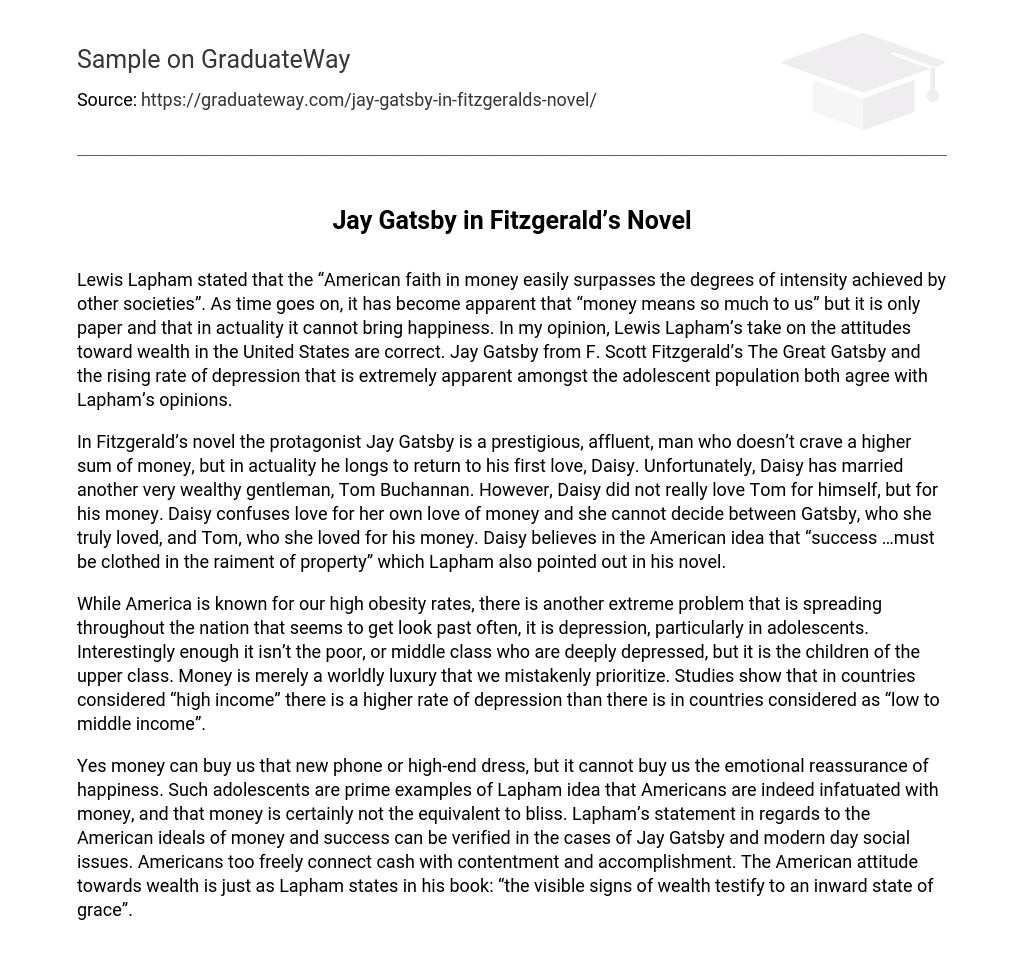Lewis Lapham argues that the belief in money is stronger in America than in any other society. However, over time, it becomes evident that money, although important to us, is simply a piece of paper and cannot truly bring happiness. I agree with Lapham’s assessment of wealth attitudes in the United States. This is also apparent in F. Scott Fitzgerald’s The Great Gatsby, where Jay Gatsby represents this obsession with wealth, and in the growing occurrence of depression among young individuals, which further validates Lapham’s perspective.
In Fitzgerald’s novel, Jay Gatsby is depicted as a prestigious and wealthy man. Rather than seeking to accumulate more wealth, his true desire is to reunite with his first love, Daisy. However, Daisy has chosen to marry another wealthy man named Tom Buchannan. Unfortunately, Daisy’s love for Tom is not genuine; she is primarily drawn to his wealth. This leaves her torn between her feelings for Gatsby and her attraction to Tom’s money. She subscribes to the belief that material possessions are essential in achieving success, which parallels the discussions on this topic by Lapham in his own novel.
Despite America’s high obesity rates, another often disregarded problem is the widespread occurrence of depression, particularly among teenagers. Strikingly, it is not those who are economically disadvantaged or middle class who experience this condition most severely, but rather the offspring of affluent families. Regrettably, we frequently wrongly prioritize wealth as a worldly privilege. Studies suggest that nations designated as “high income” exhibit a higher prevalence of depression in contrast to countries classified as “low to middle income”.
According to Lapham, money may enable us to purchase material goods like phones and dresses, but it cannot provide emotional happiness. This notion is exemplified by certain adolescents and supports Lapham’s belief that Americans are obsessed with money, and that it does not guarantee true happiness. This observation by Lapham regarding the American focus on money and success can be observed in cases such as Jay Gatsby’s and current social issues. Americans often associate wealth with contentment and achievement just as Lapham describes in his book when he states that “the visible signs of wealth testify to an inward state of grace”.





